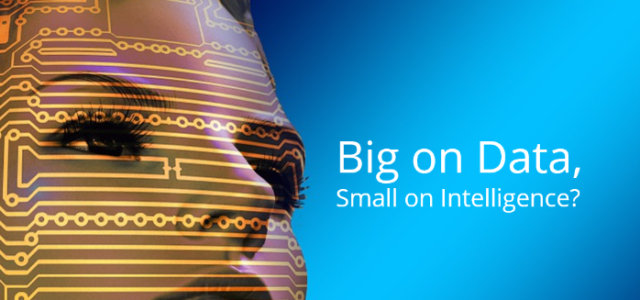Artificial Intelligence (“AI”) may one day set the record for being most talked about and least understood. Perhaps it already has. Like most humans, I’m deeply intrigued by Artificial Intelligence as well as somewhat frightened of it and concerned about its potential impact on us.
See Transhumanism and MR for some disturbing (or perhaps wonderful) possibilities. As a marketing science person, I need to know more about AI than most laypeople do, and I have read quite a bit on the subject and interacted with several who work in the field. One of them is Mei Marker, who joined David McCaughan and me as a guest on our audio podcast series MR Realities. You can listen to our discussion with Mei by clicking on “AI: Reality, Science Fiction and the Future“.
First, we must recognize that AIs are really computer programs that have been operationalized to perform a certain task or assortment of tasks. This software – AI – is usually far more sophisticated than the software we normally use or programs we write ourselves. We’re interacting with AI in one form or another at work and in our daily lives without being conscious of it. Intelligence Amplification (“IA”), as I understand it, has already arrived. However, I am not concerned about Artificial Intelligence (AI) putting me out of work in the near future – see Why I Am Not Afraid of The Machines if you’re curious as to why I’m not.
There is no single definition of AI that is generally accepted, and I sometimes see standard machine learning algorithms freely-available online re-packaged and sold as AI. Automation is also frequently confused with AI. The field is highly specialized and rapidly evolving in various directions. Much progress has been made in the past few decades, partly because of advances in computer hardware, but we’re a long way from a computer being able to trick Herbie Hancock into believing it is Wayne Shorter. Chatbots and other AI, though, are becoming more convincing and to some degree able to handle customer service duties.
I am not a computer scientist, let alone an AI specialist, but based on what I think I know, I’d like to share a few more thoughts with you.
Here are some things AI can do:
- Perform calculations far too complex for humans
- In some cases, accurately recognize patterns and associations that trained human specialists (e.g., radiologists) will miss
- Predictive analytics – accurately estimate the probability of an event based on historical (i.e., existing) data
- Learn from data – though this is also true of many computer algorithms used in statistics and data science
- Make decisions based on complex rules or predictions it has made itself. Recommendations are one example. AI is increasingly making its presence felt on the factory floor, and is now able to perform many clerical tasks and make low-level managerial decisions.
- Translate many kinds of documents to and from many languages
- Perform text mining and other types of social media analytics (e.g., audio, video)
- Pilot several types of vehicles
- Compose music and create visual art that seem humanlike to many of us
Here are some things AI cannot do:
- Analyze data and documents it is prevented from accessing for reasons of privacy or security
- Analyze data and documents which do not exist, e.g. research that has never been published or has never been conducted
- Do things beyond the range of tasks is has been programmed to accomplish. AI has no general curiosity.
- Replace the unconscious intelligence (i.e., gut instincts) of humans we rely on when sufficient data are not available to mathematically estimate probabilities or construct decision rules
- Conceptualize or make abstractions in the way humans do. Artificial General Intelligence remains elusive.
- Feel the thrill of victory or the agony of defeat. Some AIs can associate facial expressions, body language and vocabulary usage with certain human emotions (“emotional intelligence”) but AI cannot feel emotion.
- Understand why humans are so fascinated by it
Four brief articles, Artificial Intelligence 101, Connecting with the Internet of Things, Neuroscience and Marketing and Text Analytics: A Primer may be of interest to you. In addition, here are some books about AI or related topics I have found highly informative:
- The Cognitive Neurosciences (Gazzaniga et al.)
- How Computers Work (White and Downs)
- Structure and Interpretation of Computer Programs (Abelson et al.)
- Concepts of Programming Languages (Sebesta)
- Algorithms (Sedgewick and Wayne)
- Pattern Recognition and Machine Learning (Bishop)
- Probabilistic Graphical Models (Koller and Friedman)
- Artificial Intelligence (Russell and Norvig)
- Sentiment Analysis: Mining Opinions, Sentiments, and Emotions (Liu)
- Recommender Systems Handbook (Ricci et al.)
- Building the Internet of Things (Kranz)
- Precision: Principles, Practices and Solutions for the Internet of Things(Chou)
- Support Vector Machines Applications (Ma and Guo)
- Neural Network Design (Hagan)
- Deep Learning and Neural Networks (Heaton)
- Deep Learning (Goodfellow et al.)
Of course, there is much more available online, including lectures by authorities on AI and Neuroscience.
By some definitions, AI has already arrived but, by others, it remains an ambition.
Article by channel:
Everything you need to know about Digital Transformation
The best articles, news and events direct to your inbox






